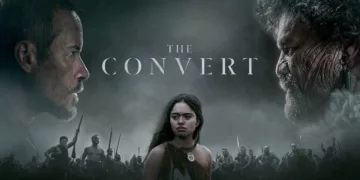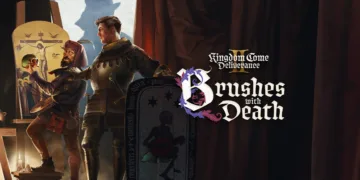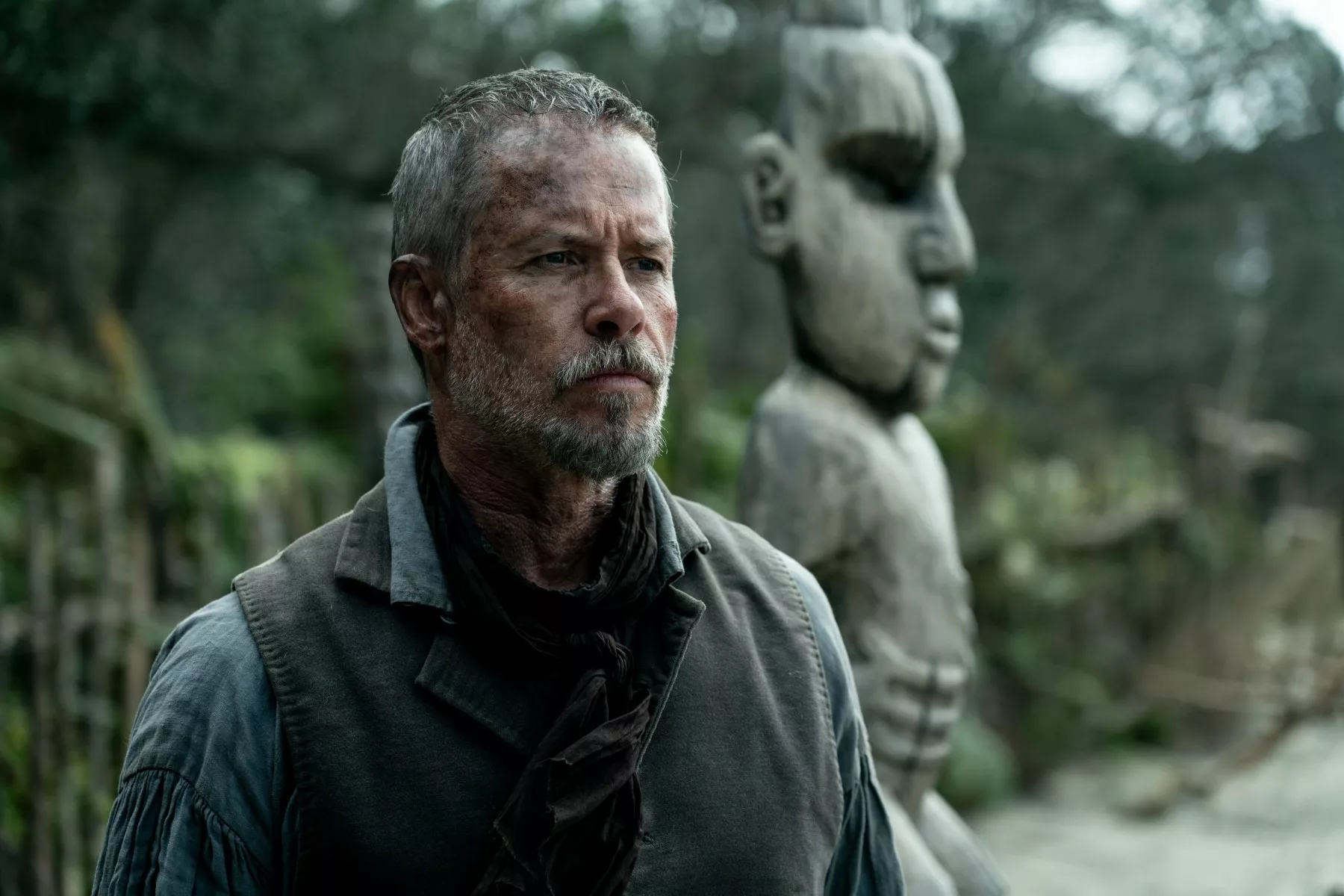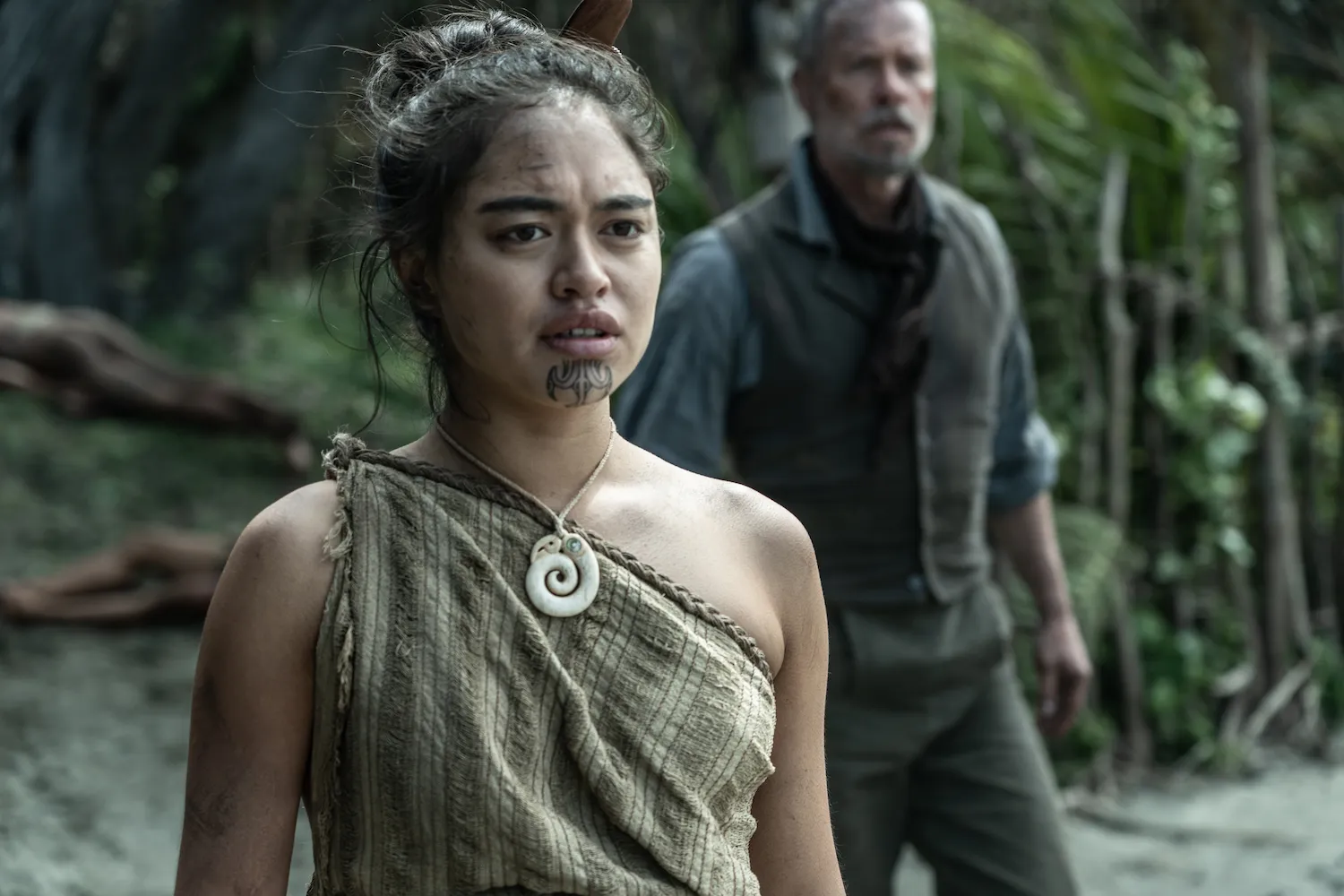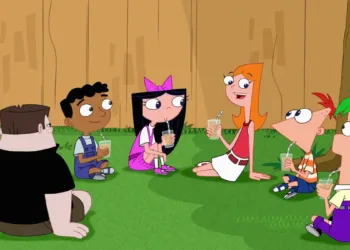Lee Tamahori’s “The Convert” takes us back to 1830s Aotearoa, now known as New Zealand. It’s a land marked by both natural beauty and bloody conflict, as rival Māori tribes battle for supremacy while newcomers from Britain seek to put down roots.
Into this turbulent world comes Thomas Munro, played pensively by Guy Pearce. A lay preacher by trade, Munro arrives, hoping to spread a message of peace. But he soon finds his own understanding transforming as he bears witness to the clashes between cultures.
By staging memorable encounters between Munro and figures on all sides, from resilient Māori leaders to resentful British settlers, “The Convert” explores how perspectives can broaden through open-mindedness. Munro himself begins as an outsider but opens his eyes and ears instead of insisting others see his way.
Thanks to this approach and help from skilled actors like Tioreore Ngatai-Melbourne, the characters avoid feeling one-dimensional. We see humanity in all, even as actions born of different life experiences sometimes bring harm.
Through its dramatic portraits of historical tensions, Tamahori’s film encourages thoughtful consideration of how we view “others.” It suggests understanding often starts by setting aside prejudices to genuinely learn other viewpoints. Though set long ago, “The Convert’s” themes feel relevant anywhere people of varying backgrounds interact today. With Munro as our guide into a clashing world, it leaves us with valuable questions on how to advance together in spite of divisions.
Cultural Considerations
Set in 1830s Aotearoa, now known as New Zealand, The Convert portrays a pivotal time when the arrival of British settlers clashed with the longstanding ways of Māori tribes. Director Lee Tamahori takes care to honor the history and culture at the film’s heart.
Tensions were high as colonies like Epworth commenced alongside tribal lands. Desires for resources and territory often superseded respect for Māori as tangata whenua, people of the land. The movie shows this discord through brittle relations between settlers biased against “savages” and leaders safeguarding ancestral grounds. Viewers see why fairness proved so elusive as prejudices on both sides festered.
A factor intensifying ancestral conflicts was newly accessible muskets. Until then, close-combat weapons like clubs defined tribal altercations. While upholding tradition’s importance for identity, muskets changed the game by enabling attacks from afar with lethal efficiency. Scenes of mass killings lay bare muskets’ power to swiftly crush resistance. Leaders prized the edge they provided, yet casualties mounted senselessly.
Tamahori makes certain to get the small details right. From garb to gestures, cultural advisors ensured authenticity. Rites like the chilling haka war dance feel genuine rather than appropriated. Subtitles also give words in Te Reo Māori, the original language, staying true to history. This grounded approach places viewers in 1830s Aotearoa to experience the interplay of cultures, grasp indigenous perspectives, and better understand Munro’s observations.
The Convert shines light on lost worlds, demonstrating why celebrating diverse traditions enriches us all. By honoring history with care and insight, it sparks thought on relations today between those long linked to the land and more recent inhabitants. Some tensions may differ, but common ground remains within reach if we lend an open, discerning ear.
Shifting Allegiances
When lay preacher Thomas Munro first arrives in 1830s Aotearoa, his intention is clear: to spread the word of God to both settlers and Māori alike. But what begins as a simple mission soon evolves as Munro’s initial worldview faces challenges in this unfamiliar land.
Setting foot with the image of a savior on his white horse, Munro travels to the newly established village of Epworth to minister. But his destiny takes a turn after rescuing Rangimai from a tribal skirmish. Caring for the grieving woman introduces Munro to Māori traditions through her kind father, Chief Maianui.
As Munro gains insights into Rangimai and Maianui’s people, his understanding expands beyond the settlers’ biased fears. Witnessing the dynamic between rival tribes also moves Munro, who harbors his own traumatic past. Though advocating peace, he starts to grasp the cultural complexity settlers fail to see.
Interacting more with local people, Munro watches his parishioners with fresh eyes. Where he once preached togetherness, disgust rises at their disrespect towards Māori. Settlers profit from selling weapons, escalating violence, and not comprehending that the land and people are intertwined.
Developing a kinship with Rangimai’s tribe, Munro’s allegiances stray from his countrymen. Trying to curb bloodshed with empathy, he learns that spirituality comes in many forms. Though unable to stop conflict, Munro finds his true calling isn’t changing others but openness to change himself.
By the story’s end, this man of faith abandons hopes of converting anyone. Instead, Munro adopts the understanding he sought to share, rejecting the role of savior for one of a humble companion on life’s journey. His character arc shows even well-meaning outsiders can rethink presumptions by respecting those called ‘other.’
Embracing Nuance
Within The Convert’s portrayal of 1830s Aotearoa, some characters fall victim to broad stereotypes. Rangimai occasionally feels like a plot device instead of a fully-formed person. It’s a shame, as actress Tioreore Ngatai-Melbourne brings such intensity. She deserves a role that allows for real complexity.
Thankfully, Rangimai’s story gracefully evolves. After Munro rescues her, their interactions show reverence for Maori customs. As she supports Munro’s peace efforts, her inner strength emerges. Their caring bond hints at how understanding can blossom across divisions.
Munro himself strives for nuance, though he is fighting an uphill battle. Settlers react to the local people with disgusting prejudice instead of seeing shared humanity. Believing force will solve disputes, they fuel suffering for all. Munro pleads that cooperation, not arms trading, is the sole path to security.
His ideals stem from witnessing Maori principles of honor in action. Where some view “savages,” Munro recognizes dignity despite cultural gaps. After opening his eyes to Maori realities, settlers’ racist simplifications ring hollow. Though unable to end the conflict, Munro’s perspective inspires hope that relations may one day change for understanding, not “othering.”
By the journey’s end, both Rangimai and Munro have gained perspective through their relationship. While some characters lack depth, together they demonstrate how embracing nuance can help bridge divisions, countering those wishing to divide and dominate. The complex truths they find in each other offer rays of light against the darkness.
Capturing a Land in Conflict
The cinematography of The Convert truly shines when focusing on New Zealand’s epic landscapes. Gin Loane’s camera sweeps across misty mountains and lush forests, transporting viewers to this remote frontier. Through vivid imagery, we feel the land’s raw power and natural beauty.
It’s disappointing then that many interiors and costumes give off a “polished” vibe instead of authentically representing the 1830s period. Characters appear too clean, and their surroundings are too manicured. This detracts from achieving full immersion. The director previously excelled at gritty realism in Once Were Warriors, but that grit is missing here.
One scene breaks from this, plunging us into a visceral war. As tensions escalate between tribes, a sprawling battle erupts. Here, Loane’s camerawork intensifies to match the action. It swirls amid the chaos, close-up on clubbing and stabbing. Smoke obscures as muskets blaze, and we feel the terrible force of this conflict. Glimpses through the haze give a sense of living this horrific moment with the characters.
This climactic battle proves Loane and the director understand evoking atmosphere. If similar grit had pervaded the film, transporting us deeper into this world and time, The Convert could have fully capitalized on its evocative setting. As it stands, beautifully capturing the land remains the strongest asset, especially when contrasting with the polished interiors that sometimes distract from authentic immersion. But in its grittiest scenes, it hints at atmospheric power that is largely untapped.
Understanding Across Cultures
Munro finds himself caught between two worlds in 1830s New Zealand. As a preacher advocating peace, he faces opposition from both European settlers and Maori tribes engaged in bloody conflict. His impassioned speeches criticizing the weapons trade ignore deeper cultural truths on both sides.
The minister sees the violence as senseless, with muskets needlessly expediting bloodshed. But the tribes view fighting through different lenses. Where Munro speaks of Christian redemption, the Maori believe only blood repays blood. Revenge forms part of their concept of utu, maintaining honor through strength.
Munro’s entreaties ignore this reality. Yet his willingness to understand proves revealing. Rather than dismissing the Maori, he incorporates their perspectives. Saving Rangimai’s life earns her respect from her chief father. Living amongst the tribes, Munro acknowledges their humanity where others see only savagery.
His embrace of Maori language and rituals shows an openness rare for Europeans. As ties strengthen with Rangimai and her people, Munro comes to see settlers not as compatriots but as colonizers exploiting indigenous lands and divisions. His disillusionment parallels the Maori awakening to British intentions through competing musket sales.
By the film’s end, the minister finds kinship less with missionary countrymen than with tribal allies. While promoting Christian mercy, Munro internalizes Maori ideas of autonomy and valor in battle. The greatest conversion lies not in souls but in shared understanding. Through courage, compassion, and willingness to learn, one forms bonds, crossing imposed borders of faith and culture.
The Convert highlights how cultural exchange progresses most fruitfully through respect, not the imposition of beliefs. By setting aside the role of teacher and becoming a student, Munro proves relationships built on mutual aid and understanding can transcend division. His story reminds us how embracing diverse perspectives, not dismissing them, forms the soundest path to peace between formerly opposing sides.
Finding Common Ground
The Convert concludes by reflecting on Munro’s journey from outsider to observer committed to understanding each side. Arriving to spread Christianity, he witnesses firsthand the human toll of colonial violence between settlers and Maori. Munro comes to see both groups fail to respect each other’s humanity.
His relationship with Rangimai opens his eyes to Maori customs and hardships under invasion. As she navigates loss and revenge, Munro gains sympathy for her people’s plight. He works to explain Maori beliefs to settlers blinded by prejudice. Meanwhile, tribe leaders dismiss his pleas for nonviolence, bound to tradition despite mounting casualties.
The film examines how the musket trade exploits tensions for profit. It also shows the challenges people from differing cultures face in finding relationships of equality and trust. Through it all, Munro strives to see both sides as multi-faceted, endeavoring to halt demonization and spread goodwill. While the story favors his point of view, it finds truth in the resilience of indigenous land and identity.
The Convert brings colonial New Zealand history to life through breathtaking landscapes and grounded performances. Some critiques note that it falls back on tropes or simplifies nuanced problems. Still, it sparks thought on how open-minded dialogue, not dominance, forms the surest path to reconciliation. By the film’s end, Munro emerges not as a savior but as a as a facilitator of cultural exchange, a role just as vital for building understanding between formerly opposing worlds.
The Review
The Convert
While not without flaws, The Convert succeeds in thoughtfully dramatizing New Zealand's colonial past and the conflicts that arose from cultural clashes. Guy Pearce delivers a nuanced lead performance that anchors the film, and Tioreore Ngatai-Melbourne is deeply compelling as Rangimai. Though some critiques of minor simplications are valid, Tamahori directs with a commendable eye towards authenticity. More than anything, the movie sparks reflection on how understanding differing perspectives—not dominance—forms the surest path to reconciliation between formerly opposing sides.
PROS
- Guy Pearce's nuanced lead performance
- Beautiful cinematography that brings colonial-era New Zealand to life
- A thoughtful examination of colonial violence and cultural impacts
- Highlights the importance of cultural understanding over dominance.
CONS
- Occasionally falls back on tropes like the white savior narrative.
- Simplifies some nuanced problems between cultures.
- The narrative is somewhat predictable.
